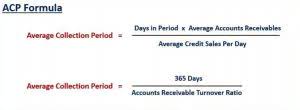
If you want to become a bookkeeper for a nonprofit, try looking at internships that could help you learn more about the processes. Bookkeeping for a nonprofit is the process of entering, recording, and classifying an organization’s finances. There are major differences between the three types of bookkeepers and what each can offer your Nonprofit.
- One of the first things we need to clarify before digging deeper into bookkeeping for a nonprofit is the difference between nonprofit and for-profit entities.
- Since nonprofit organizations risk losing their tax-exempt status if they don’t comply with accounting principles, it’s vital to pay attention to proper bookkeeping.
- Their focus is on recording the financial transactions of your organization through maintaining records, tracking transactions, and creating financial reports.
- An in-kind donation or a gift in kind represents a donation of goods or services instead of money for purchasing goods and services.
- Bank reconciliation is the process of ensuring an organization’s records (balance sheet, general ledger account, cash flow, etc.) are accurate.
While the basic bookkeeping principles may apply in both cases, certain seemingly small details make significant differences in how a nonprofit’s finances are done. Just like for-profit businesses, nonprofits need to spend money on accounting. However, it’s important to consider that nonprofits require a much more robust system of bookkeeping and accounting than for-profit businesses. Since nonprofits use other people’s money to fund their operations and further their causes, it’s essential to keep spotless financial reports and carefully record where each penny comes from and where it goes for compliance purposes. Bookkeepers are in charge of maintaining your books closely day in and day out. Their focus is on recording the financial transactions of your organization through maintaining records, tracking transactions, and creating financial reports.
RESOURCES
Some are unrestricted net assets and some are considered restricted net assets. Many accounting software programs allow you to generate financial statements automatically, such as a statement of financial position. This reduces the possibility of errors and guarantees reliability and accuracy. Of course, you can nonprofit bookkeeping always generate financial statements manually, but this takes a lot of time and skill. A nonprofit’s statement of cash flow tracks a nonprofit organization’s cash and financial health. This statement contains information on how much cash an organization generates from investing, financing, and operations.
- Bookkeeping for a nonprofit, or nonprofit bookkeeping, represents a unique way a nonprofit organization plans, records, and reports its finances.
- Keeping your books in order and up-to-date is important for the basic financial strength of your organization.
- Now more than ever, part-time or in-house bookkeeping is not ideal, and switching to outsourced bookkeeping or accounting is becoming a more common solution.
- GrowthForce accounting services provided through an alliance with SK CPA, PLLC.
- Outsourcing also offers many benefits that you can’t get with an in-house bookkeeper.
- However, most nonprofits that make the leap see the value, and experience an ROI rapidly.
It goes without saying that you should never use your personal bank account for your nonprofit organization. You can always ask your bank about your account options and use those tailored for nonprofits. The option you go for should also enable you to do fund accounting (i.e., use different accounts for different purposes). Nonprofits have strict rules regarding funding sources and how they should be spent.
How Much Should My Architecture Firm Pay for Controller Services?
A key benefit of Outsourcing is that it gives you the ability to customize the services with your bookkeeping needs. For example, outsourcing can potentially offer advanced management accounting and controller functions to receive a complete “virtual accounting department”, and could be what you need at this stage in your growth. An outsourced bookkeeping and accounting service should be able to scale with you by adding full-service accounting when you are ready for it. For example, outsourcing can potentially offer advanced management accounting and controller functions to receive a complete “virtual accounting department”, and could be what you need at this stage in your growth. These financial statements can provide helpful insight into your nonprofit’s financial health so that you can adjust accordingly and plan your next moves. The basis for an accurate bookkeeping and accounting system is recording all financial transactions.


